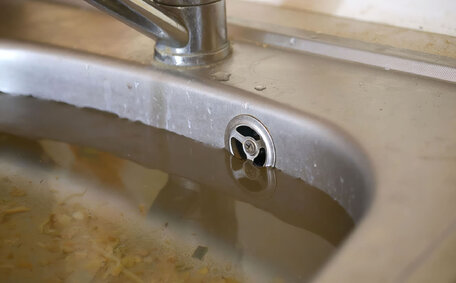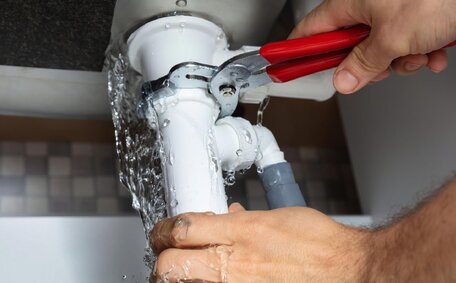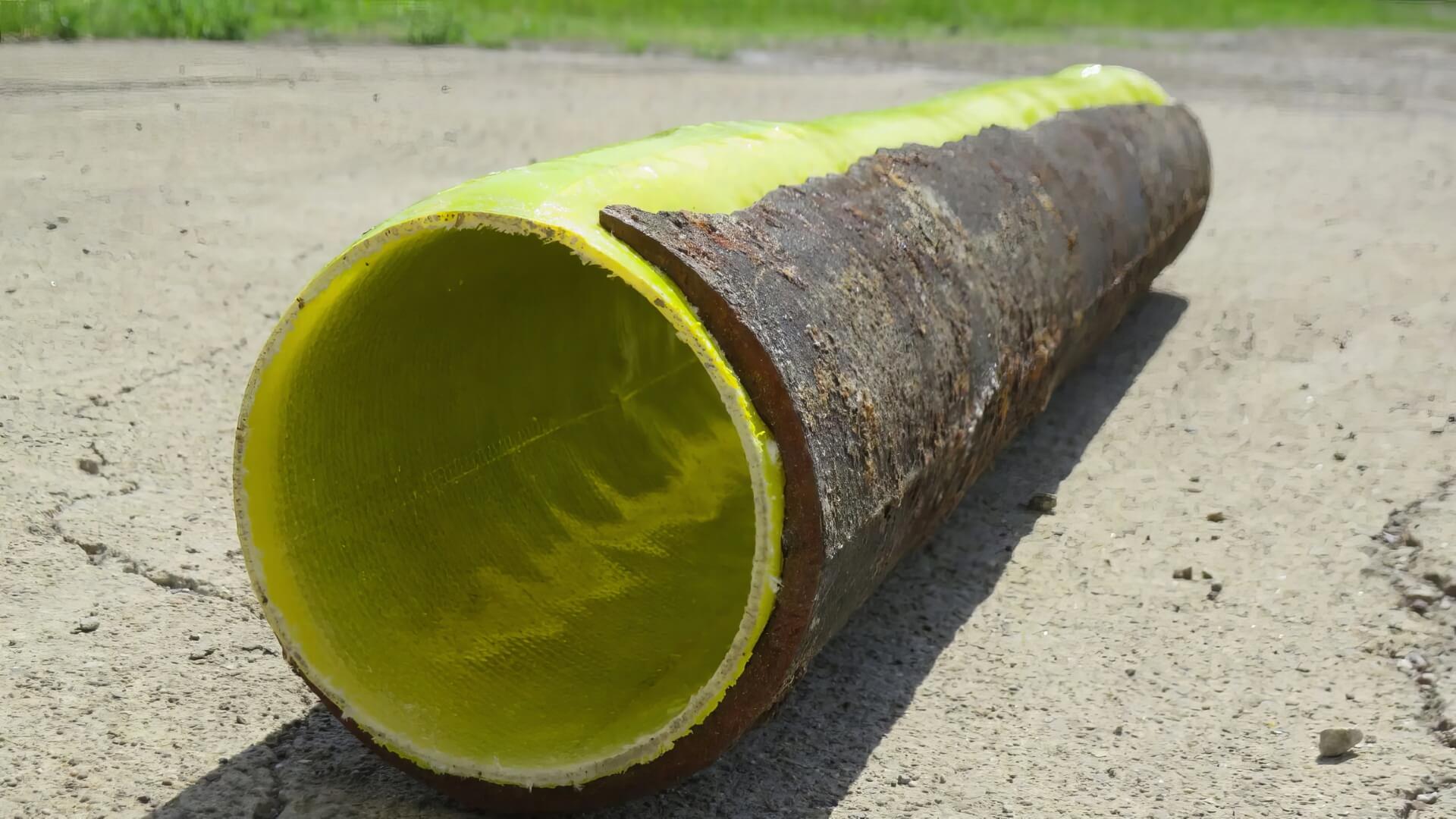The Dangers of a Gas Leak and Why Professional Repairs Are Critical
Gas line leaks in residential settings pose serious safety risks that demand immediate attention. If not addressed, gas leaks can cause fires, explosions, and result in carbon monoxide poisoning. In fact, carbon monoxide is the leading cause of accidental poisoning deaths in Australia, claiming over 400 lives per year.
Attempting DIY repairs without proper training and equipment puts yourself and your family at great risk.
A licensed gas fitter is crucial for the safe and effective shutdown of the gas supply, and to carry out repairs:
- Accurately locate the source leak within the gas system
- Assess the extent of the problem
- Safely turn off gas valve to stop the leak
- Make necessary repairs up to code
- Restore safe operation of gas appliances
Do not turn on electronics or operate gas appliances if you suspect a gas leak; the risk of ignition and explosion is too great. Leave the area immediately and call emergency services if you detect the rotten egg odour that indicates off main gas is necessary due to natural gas presence.
The safety of lives and property far outweighs the initial cost of professional repairs. Preventative maintenance can also help avoid gas line leaks in your system and other issues down the road.
What To Do When You Suspect A Gas Leak
If you detect the rotten egg smell of natural gas or hear a hissing noise coming from gas appliances, there are important steps to take right away:
- Evacuate the area immediately. Get everyone out of your house and leave the doors open as you exit. Do not operate any electronics, turn on lights, use phones, or do anything that could create a spark.
- Shut off the gas supply at the main shut-off valve located next to the gas metre, or by turning off the valve on the appliance that is leaking. Use an adjustable wrench to turn off the valve clockwise a quarter turn until it stops.
- If you cannot safely reach the shut-off valve, you’ll need to call 000 immediately to get emergency assistance shutting off the gas supply. Emphasise that you have detected a major gas leak when speaking with the operator.
- Do not re-enter the home until emergency services confirm it is safe to do so.
- Once given the all-clear, contact a licenced gas fitter to inspect all gas appliances and lines to locate and repair the source of the leak before restoring gas service.
Taking swift action by following these gas leak response steps can prevent fires, explosions, and exposure injuries. Always evacuate immediately and seek professional assistance for a leaking gas line during a gas leak. Prioritising your safety is critical.
Why DIY Gas Line Repairs Should Be Avoided
DIY repairs on leaking gas lines are not only dangerous but also unlawful without appropriate licensing.
Gas systems, such as your gas meter, work under high pressure and necessitate specialised tools available only to licensed technicians. Attempting to fix leaking gas with improper gear raises the risk of sparks or ignition. Even basic mistakes can cause deadly gas line leak buildup and explosions.
By law, any work done on gas lines and appliances, including addressing any gas leak situations, must be performed by a certified gas fitter. DIY repairs void insurance coverage and you can face heavy fines or jail time if caught.
The intricacy involved also makes DIY repairs unlikely to properly address the underlying issue when fixing a gas leak. You may stop one leak while inadvertently creating another from inaccurate pipe or valve adjustments.
Enlisting professional assistance for gas leak issues guarantees compliance with safety regulations, building codes, and manufacturer specifications, using professional-grade tools. Expertise ensures that repairs are correctly done the first time.
While calling a professional may initially seem more expensive, incorrectly done repairs that need re-fixing will cost far more in the long run. Most importantly, the safety of your household is invaluable and cannot be quantified.
The Process and Licensing Required for Professional Gas Line Repairs
When a leaking gas line needs replacing, a licenced professional will follow a stringent process to ensure safe and proper repairs.
- After inspecting the site and locating the repair leak, the first priority is shutting off the main gas supply to the affected line using the main gas valve.
- The area around the work site is then made safe, starting with turning off the main gas valve and sealing off rooms to avoid gas buildup.
- Technicians wear appropriate protective gear such as respirators, goggles, gloves, and flame-retardant clothing as a precaution to repair leaks.
- Faulty piping is carefully detached and replaced in accordance with manufacturer specifications, building codes and safety regulations.
- New pipes and connectors are checked for secure fittings, ensuring they repair any weaknesses, before restoring supply via the main valve.
- All joins and connections are pressure tested with specialised equipment to verify integrity.
- Gas appliances linked to the repaired line are fired up to ensure proper functioning.
Only gas fitters qualified and licensed by the Plumbers Gasfitters and Drainlayers Board NSW may legally conduct gas line repairs in Newtown and throughout Sydney. Licencing requires extensive training, assessments and work experience under supervision.
Rather than taking risks with DIY repairs, hiring a certified professional like Newtown Plumbing ensures your gas system issues are handled safely and correctly the first time.
Maintaining Your Gas Lines To Prevent Leaks And Ensure Safety
Proper maintenance is essential to preventing leaks in your gas lines and appliances. As gas systems age and endure regular use, the risk of leaks rises over time.
To minimise this risk, have a licensed gas fitter conduct detailed inspections and tests biennially. They will check all fittings, seals, connectors and pipes for the following:
- Cracks or corrosion that can lead to leaks
- Blockages that increase pressure on old pipes
- Loose fittings that can separate
- Expired flexible connectors that become brittle
In routine servicing, the gas fitter may clean gas lines, replace worn parts, and fine-tune components to optimal standards. Keep records of all maintenance and repairs for future reference.
Between check-ups, stay alert for any signs of problems with your gas line:
- The rotten eggs smell indicating a leak
- Soot buildup around appliance vents
- Increased humidity inside windows nearest gas appliances
- Orange flames instead of blue coming from burners
- Appliances that could take longer to ignite or shutting off randomly
Resolving issues promptly can prevent dangerous future leaks in your gas pipelines. Remain vigilant, keeping up with preventative maintenance for household safety and system reliability.
When To Repair vs Replace Your Gas Lines
The decision to repair or replace a gas line hinges on several key factors:
Age of the Pipe
Corroded and cracked metal pipes usually necessitate complete replacement to mitigate the heightened risk of major leaks. Modern pipes have a lifespan around 15-20 years before needing replacement.
Pipe Material
Copper pipes have a longer lifespan than galvanised steel, and PVC gas lines can last over 50 years. The cheaper the material, the shorter the lifespan.
Frequency of Issues
Should you experience recurrent leaks in the same pipes despite repairs, opting for replacement is advisable for enhanced reliability.
Extent of Damage
While localised corrosion may be repairable, extensive damage along extended lengths of pipe will necessitate replacement.
Cost of Frequent Repairs
Eventually, the cost of repeatedly addressing the same pipe leaks can exceed the expense of replacing them with modern, durable materials.
Consult a qualified gas fitter to evaluate any potential leaks and offer recommendations for repairs or repiping. They can determine whether replacement or spot repairs are most suitable based on pipe condition, age, location, and your budget.
Signs Of A Faulty Gas Line Needing Attention
Various warning signs suggest your gas lines could be defective and in need of professional repair:
- Drop in Gas Pressure: Appliances like ovens and hot water systems taking longer to ignite or not heating to the correct temperature can signal issues with gas flow and pressure.
- Frequent Pilot Light Outages: If appliance pilot lights are randomly shutting off, it points to problems with gas lines or valves.
- Soot Build-Up: Black residue around appliance vents结果 from improper gas combustion and can mean pipes need cleaning or replacing.
- Rotten Egg Odours: The tell-tale smell of natural gas escaping around appliances or metre areas must be addressed promptly.
- Hissing Noises: Hearing hissing coming from concealed gas pipes is a giveaway sign of leaks needing urgent repairs.
- Higher Gas Bills: Unusually high gas usage without changes in usage patterns can indicate gas loss from leaks.
If you notice any of these warning signs, act quickly to address them. Continued usage with compromised gas systems risks fires, explosions, and carbon monoxide poisoning, potentially due to leaks your pipes exhibit.
Newtown Plumbing offers emergency repair services and comprehensive evaluations of your gas system, including water heaters. Contact us immediately if you suspect line leaks in your system so our licenced technicians can restore safe and reliable operation.
Who’s Responsible For Gas Leaks And Repairs
When a gas leak occurs, there is often confusion around who is responsible for repairs and restoration of gas supply. To clarify, responsibility is divided as follows:
Homeowner
As the owner of private gas lines and appliances on your property, you are responsible for arranging and paying for any repairs or replacements required, using a certified professional.
Gas Utility Company
Utility companies like Jemena Gas Networks maintain gas mains up to your property line and are responsible for shutting off supply in emergencies. However, repairs to private lines are still the homeowner’s responsibility.
Authorities
NSW Fair Trading oversees regulation compliance of licenced technicians. Your local council may get involved if gas leaks pose dangers requiring evacuation. Fire and Rescue NSW responds to emergency leak calls.
Our licensed gas fitters at Newtown Plumbing can manage leak repairs and pipe issues on your property.
We also offer preventative line inspections and appliance servicing to circumvent leaks future incidents and ensure household safety.Contact us at jobs@newtownplumbingservices.com.au or 1300 349 338 for all your gas line repair needs, whether emergency leaks or routine maintenance.






